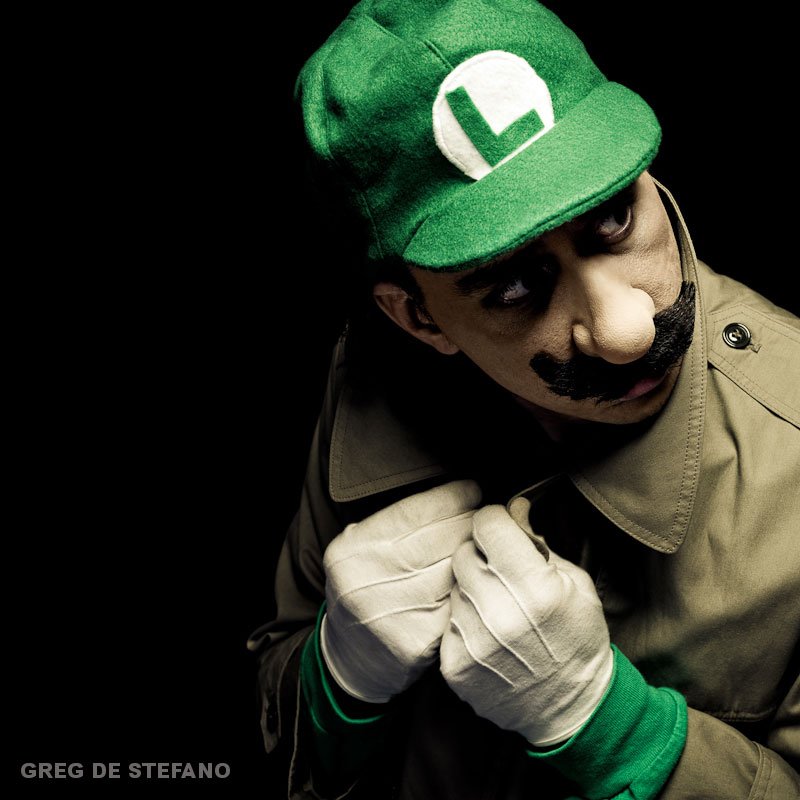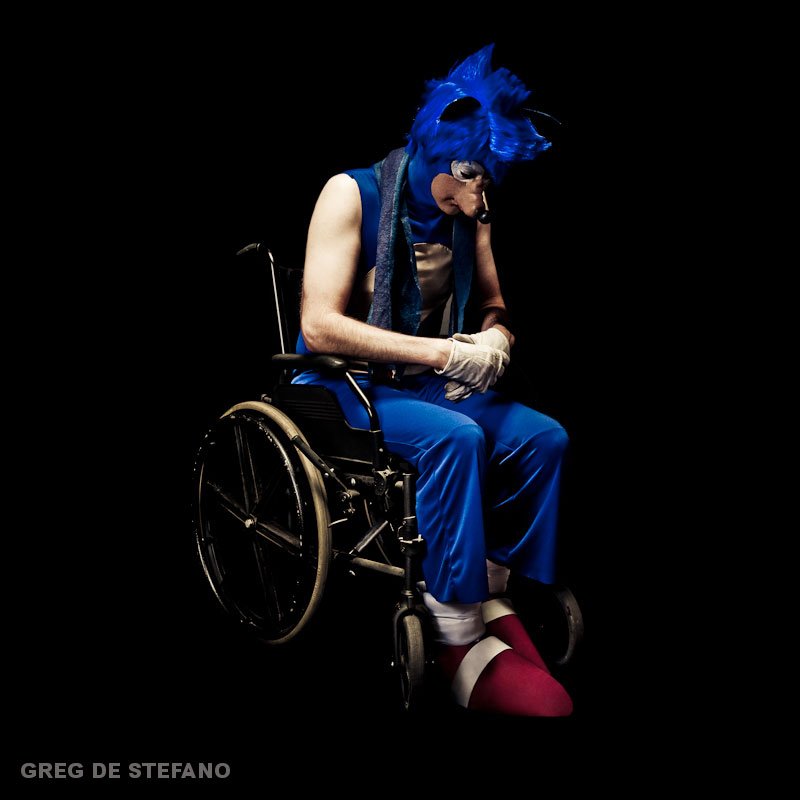Media, if broken into separate categories, lends itself to cross-wiring: some types of media products can be (at least attempted to) translated into other types. We can observe this in the wave of “adaptations” that plagues the movie industry, all translating (or, rather, transducing and often imperfectly, due to the nature of the media type involved) one type of media into another.
Signal Transduction
Transducing games or game series into movies, cartoons, comics or short films (that rarely exceed ten to fifteen minutes) is common. “There Will Be Brawl” (henceforth TWBB) is a different kind of signal transduction: that of many different Nintendo games (themselves united in the “Super Smash Bros.” fighting game series prior) into a web-based, live-action limited series.
The series is a bit of a hail from the recent past: it was firstly and largely streamed during 2009 on www.escapist.com. Written by Zach Gaffron and Matthew Mercer, directed by Matthew Mercer, the series quickly achieved critical acclaim due to its unique style and firm grip on the Smash Bros. (and, to an extent, the Nintendo) verse. Consisting of ten episodes in total, TWBB marked its territory, and no encroachment has been seen since.
© Greg de Stefano
The Mushroom Kingdom Was Not Always Like This
The setting and the plot are brilliant: Mushroom Kingdom is a dystopian urban hell in which several mafia dons rule and fight, and the heroes of once try to navigate the strange, dark new world, in the only ways they know how. Some have adapted, but the more old-fashioned brawlers have failed to do so. Mushroom Kingdom is home to everything from gangs, prostitution to rigged boxing matches and illegal Pokemon fighting rings (yes, that’s right.) When the latest in a string of disappearances and murders comes to a head with the disappearance of Princess Peach, who was on the same trail, Luigi sets out to investigate on account of Mario coping with the event by popping pills (“vitamins,” an allusion to the Dr. Mario games) and whiskey. He’s beset on all sides by fallen, bitter heroes and frustrated, power-mongering villains, as well as a few unlikely allies. He gradually uncovers conspiracies, background power plays that go right down to the foundations of what has made the Mushroom Kingdom what it is today.
The series, as stated, is an interesting take on the Nintendo Universe, one that cooks the shiny, colourful games in the sauce of pure, cruel reality. However, it does not attempt to make it so realistic that it’d negate using the Nintendo ‘verse in the first place. “There Will Be Brawl” exists in the cracks left by the open-ended worlds presented within the context of the games. A running theme is that heroes cannot exist in a world beset on all sides by greed, corruption, brutal violence, monetary concerns, i.e. the daily grind that the rest of us have to face, if we lived in a very bad neighborhood. Also prevalent because of this sharp turn into a semi-reality is how the characters themselves have been affected by this new world that they walk, calling back to some of the very first games that brought these characters forth to deconstruct each and every one of them.
Visually, the Mushroom Kingdom appears to be no different than a semi-metropolis anywhere. High-rise skyscrapers looming over the red-brick projects and low-income suburbs, which stands in garish contrast to the colorful city-dwellers walking the streets. We are treated to the seedy underbelly of the Mushroom Kingdom, with gambling hideouts, secret passageways, strip joints, sleazy bars and bar/brothels (all in the hands of game characters, of course.) Apropos, also contrasted are the kinds of things these characters are driven to do in order to navigate the brave new Mushroom Kingdom.
© Greg de Stefano
Choose Your Fighter
“There Will Be Brawl” features a wide cast, each one worked in as much detail as possible. With the exclusion of cameos, the main/relevant cast hail from: Donkey Kong, Super Mario Bros, The Legend of Zelda, Metroid, F-Zero, Kid Icarus, Star Fox Adventures, Sonic the Hedgehog, Metal Gear Solid, Pikmin, Kirby’s Dreamland (series), Mario Party, Fire Emblem, Sin and Punishment, Golden Sun, Ice Climber, Pokemon (series), Earthbound, Mother 3 and Punch Out!!! This also marks the only drawback of the series is that, while the crux of the plot, as well as the novelty of its setting and execution will hit home, the nuances and some of the in-jokes can fly over one’s head, if one doesn’t have at least a cursory knowledge of the series mentioned.
The characters are twisted wonderfully. To elaborate: Luigi is a trenchcoat-wearing private dick, complete with voiceover narration; Mario is a short-fused, misanthropic, violent drunk; Wario is an opportunistic hustler who always “knows a guy who knows a guy”; Samus Aran is a stripper/escort/hooker; Captain Falcon runs a gay bar and Pit (from Kid Icarus) is his lover; Link is police chief, a position also occupied by Zelda; Sonic is a wheelchair-bound immigrant; Ganondorf is a shadowy, secretive mafia don; the Ice Climbers have become hammer-wielding psychopaths who, apparently, get off on their victims crying.
Last but not least, Kirby is re-imagined as a Hannibal-like figure, inspiring fear and revulsion with a mere utterance (and the way he is done, visually, is downright frightening.) He is presented as a voracious, monstrous, malevolent yet highly intelligent figure, able to read people he is conversing with perfectly with nothing more than a cursory glance, and able to manipulate those he is in contact with. Even when off-screen, he is present, for the events that took place prior to the series center around him.
As such, the background of the setting is dropped in conversation and the occasional, scarce flashback, and it makes for an interesting reflection on how modernization destroyed the decidedly rural order of things. That each character comes with a built-in purpose and/or backstory allows for a lot of wriggle room, which is utilized to the fullest. For instance, Hyrule, Ganondorf reveals, was annexed by the Mushroom Kingdom because of economic collapse. Samus Aran’s work as an escort/hooker is a result of her bounties drying up, something ensured by Captain Falcon’s efforts. Solid Snake lives in the immigrant quarter (in a cardboard box, of course) because he is a shell-shocked veteran. And all of this was set off by an actually sound interpretation of how Kirby’s main form of attack worked: Kirby, apparently, went on a killing spree in the Mushroom Kingdom, his modus operandi earning him the nickname “The Cannibal.” This is an allusion to the fact that in his very first game, the only weapon Kirby had was to swallow his enemies and spit them out as destructive stars. The fear that he generated plunged the entire realm into chaos, creating, effectively, the present situation. Even years after the fact, the Mushroom Kingdom still speaks of the Cannibal with fear and disgusted reverence.
© Greg de Stefano
-SIC-
There are many small in-jokes and references peppered throughout the series. For instance, at one point, Mario walks into King Dedede’s bar, and the bartender is Pauline – the first abducted girl that Mario (then only known as the “Jumpman”) had to save (from Donkey Kong.) In later games, Pauline would be replaced by Princess Peach, which Pauline alludes to by hinting that she has had an on-again, off-again relationship with Mario. Solid Snake occupying a cardboard box in the immigrant neighborhood is an allusion to how he often used cardboard boxes to sneak around. Link once utters the line “Well, excuse me, princess! But I’ve heard that legend before.” This is a shout out to two Zelda-related products: the 1989 cartoon (where “Well, excuse me, princess!” is Link’s catchphrase) and the fact that the game series has the main title of “The Legend of Zelda.”
At times, the characters also fall into this. For instance, Wario’s brother, Waluigi is portrayed as a mentally challenged, child-like individual. Since Waluigi was first brought to the fore in the Mario Party game series, in the only two scenes he’s there, he often spouts references to suit this, such as suggesting that it’s “a Mario party” (with Mario and Luigi there as well) or asking if they want to play tennis. Link is often seen arguing with Zelda as she is Sheik, the cross-gendered (male) warrior, which he uses in an insult to call Zelda a “bipolar, crossdressing psychopath.” Ganondorf, in a meeting involving Captain Falcon, states that he and the Captain “are a lot more similar than (Luigi) thinks,” hinting at the fact that in the game of Super Smash Bros. Brawl, these characters have the same move-set.
This, in turn, makes the series a very firmly-grounded one. There are, admittedly a few mistakes, and performances can be uneven at times, as well as budgetary constraints apparent, but where TWBB excels is in making these otherwise crucial aspects unimportant via a solid plot, good dialogue, a firm grasp on the characters and a vice-grip on what it wants to be, and how far it wants to go, which is what makes it so formidable.







